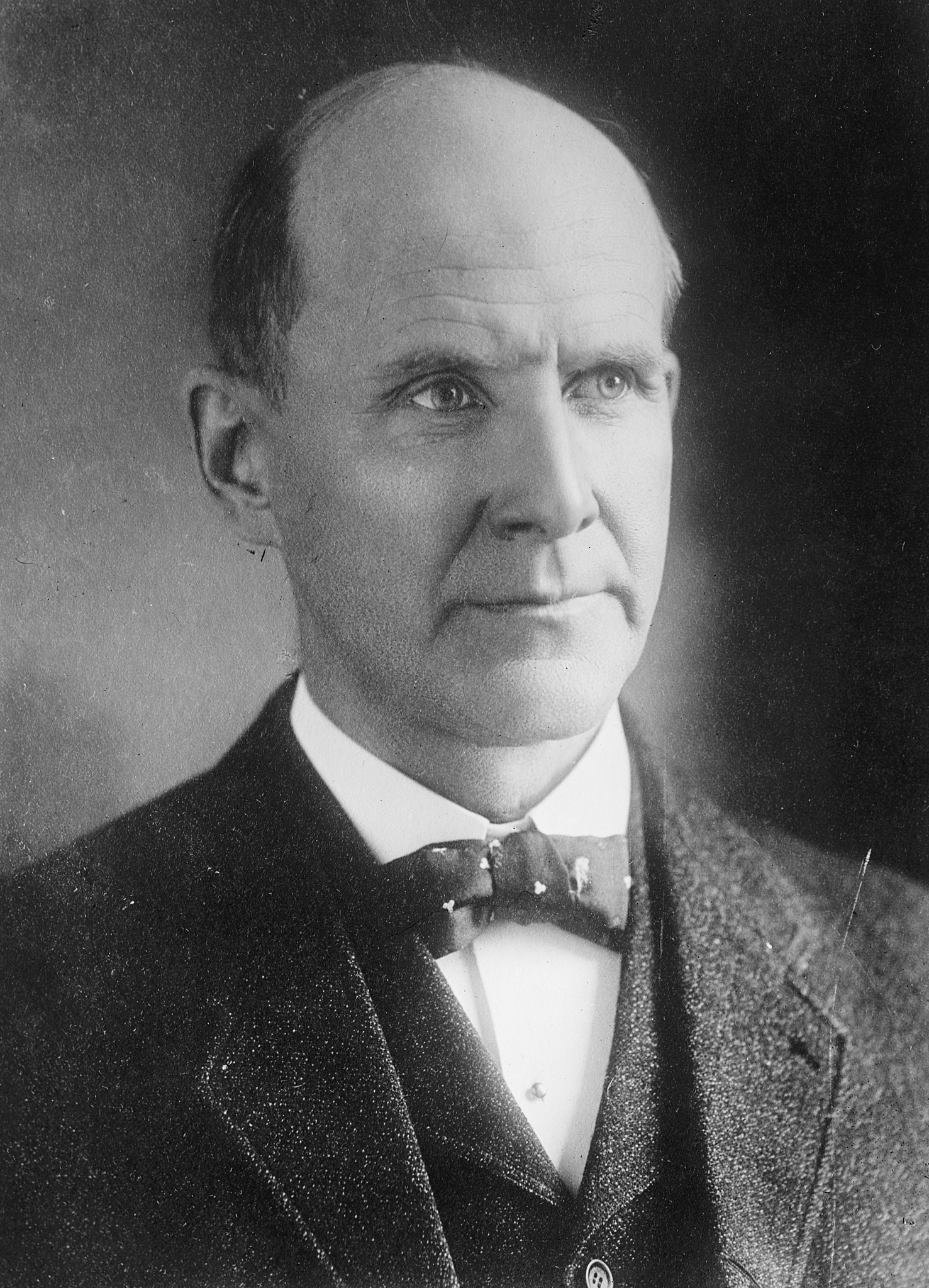Eugene V. Debs | |
|---|---|
 | |
| Born | November 5, 1855 Terre Haute, Indiana, United States |
| Died | October 20, 1926 Elmhurst, Illinois, United States |
| Political orientation | Alleged Marxism Democratic socialism Opportunism Revisionism |
| Political party | Socialist Party of America |
Eugene Victor "Gene" Debs (November 5, 1855 – October 20, 1926) was a Statesian socialist, political activist, trade unionist, one of the founding members of the Industrial Workers of the World (IWW), and five times the candidate of the Socialist Party of America for President of the United States. Through his presidential candidacies as well as his work with labor movements, Debs eventually became one of the best-known socialists living in the United States.
Early in his political career, Debs was a member of the Democratic Party. He was elected as a Democrat to the Indiana General Assembly in 1884. After working with several smaller unions, including the Brotherhood of Locomotive Firemen, Debs led his union in a major ten-month strike against the CB&Q Railroad in 1888. Debs was instrumental in the founding of the American Railway Union (ARU), one of the nation's first industrial unions. After workers at the Pullman Palace Car Company organized a wildcat strike over pay cuts in the summer of 1894, Debs signed many into the ARU. He led a boycott by the ARU against handling trains with Pullman cars in what became the nationwide Pullman Strike, affecting most lines west of Detroit and more than 250,000 workers in 27 states. Purportedly to keep the mail running, President Grover Cleveland used the United States Army to break the strike. As a leader of the ARU, Debs was convicted of federal charges for defying a court injunction against the strike and served six months in prison.
In prison, Debs read various works of socialist theory and emerged six months later as a committed adherent of the international socialist movement. Debs was a founding member of the Social Democracy of America (1897), the Social Democratic Party of America (1898) and the Socialist Party of America (1901). Debs ran as a Socialist candidate for President of the United States five times, including 1900 (earning 0.6 percent of the popular vote), 1904 (3.0 percent), 1908 (2.8 percent), 1912 (6.0 percent), and 1920 (3.4 percent), the last time from a prison cell.[1] He was also a candidate for United States Congress from his native state Indiana in 1916.
In 1896, Debs became involved with a Utopian settler colonial project of settling sparsely populated western or southern states to create co-operative colonies in league with the Brotherhood of the Cooperative Commonwealth[2]. Even begging John D. Rockefeller for financial assistance[3].
Debs was noted for his oratorical skills, and his speech denouncing American participation in World War I led to his second arrest in 1918. He was convicted under the Sedition Act of 1918 and sentenced to a ten-year term. President Warren G. Harding commuted his sentence in December 1921. Debs died in 1926, not long after being admitted to a sanatorium due to cardiovascular problems that developed during his time in prison.
Library works
The following are works by Eugene V. Debs in ProleWiki's own Library.
References
- ↑ Deirdre Grisworld (2020-02-24). "The anti-war presidential candidate" Workers World. Archived from the original on 2022-12-03. Retrieved 2023-01-14.
- ↑ “He is confident that a membership of 1 million could be obtained in six months. These members would be asked to contribute whatever amount they felt able to give, and the fund thus raised would be used in sending men into that Western or Southwestern state where the effort is to be made to obtain political control.”
Chicago Record (1897-05-24). "Plan to Redeem Toil" Chicago Record. - ↑ “Debs was already well known to the delegates, as he had helped the W.F.M. as a speaker and organizer when the Cloud City Miners’ Union had been on strike at Leadville in 1896. He was known to all of us as one of the finest orators in the labor movement. We all knew his weaknesses and some of us knew of his pathetic letter to John D. Rockefeller appealing for funds for his colonization scheme.”
William D. Haywood (1929). Original: Bill Haywood’s BookElectronic: BIG BILL HAYWOOD The Autobiography of William D. Haywood.: 'Telluride'. New York: Original: International Publishers Co, original Electronic: NightHawk Books.